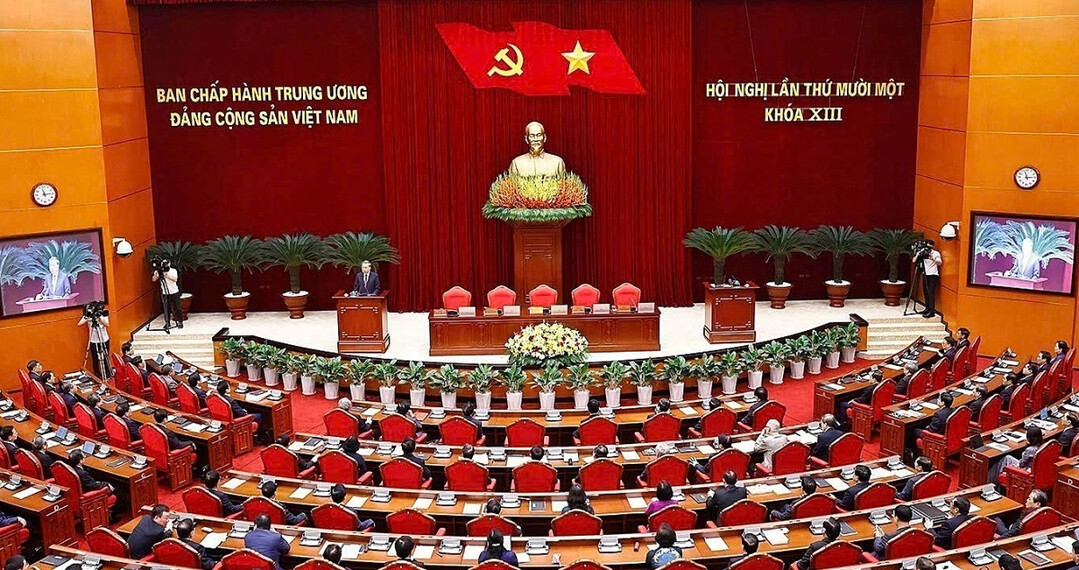
The Vietnamese National Assembly will vote on a resolution tomorrow (June 12) to merge and consolidate centrally-governed cities and provinces, which will take effect immediately. As a result, Vietnam's 63 first-tier administrative divisions (centrally-governed cities and provinces) will be significantly reduced to 34, with the six major cities – Hanoi, Ho Chi Minh City, Hai Phong, Da Nang, Can Tho, and Hue – remaining unchanged.
This move is seen as reflecting the strong will of the Vietnamese government to enhance administrative efficiency and promote balanced regional development. However, it is simultaneously expected to cause considerable confusion for resident foreigners and the local expat community.
Background and Significance of Vietnam's Administrative Reorganization
The Vietnamese government has been pursuing the "Local Administrative Unit Reorganization Plan" since 2021. This initiative is being carried out under a long-term vision to improve inefficient administrative systems, promote development in underdeveloped areas, and ultimately strengthen national competitiveness. Specifically, the goal is to integrate provinces and cities with small populations or low economic self-sufficiency to consolidate administrative services and efficiently allocate resources.
This consolidation is expected to bring about major changes in Vietnam's local government operating system. The reduction in administrative units can reduce redundant tasks, increase the efficiency of budget execution, and streamline policy-making processes. Furthermore, integrated regions can attract larger development projects and concentrate infrastructure investments, thereby promoting regional economic revitalization.
However, in the short term, confusion due to the widespread administrative boundary changes is inevitable. In particular, foreigners and expats may experience difficulties adapting as administrative information closely related to their daily lives, such as residences, businesses, and schools, changes.
4 Essential Checkpoints for Expats
With this administrative reorganization, resident expats in Vietnam must confirm and prepare for the following:
1. Confirm Changes to Administrative Divisions for Residences and Business Locations: The most urgent matter to confirm is whether the administrative division name and jurisdiction of your current residence or business location have changed. For example, an area previously belonging to Province A might be merged with Province B and renamed as a new Province C. This affects all official documents, including resident registration, business registration, and visa and residence permit applications. Therefore, it is crucial to accurately ascertain the changed names and the relevant administrative agencies. It is important to check as soon as the official names and boundaries of the merged provinces are announced.
2. Familiarize Yourself with Changes Related to Public Service Usage: When administrative divisions change, there may also be changes in the use of related public services. For example, the jurisdiction or contact information of major public institutions such as health centers, education departments, and tax offices is likely to change. It is important to ascertain in advance which institutions your existing services will be transferred to, and what the new jurisdictional bodies are. In particular, it is advisable to also check the jurisdiction of police stations and fire departments for emergency situations. In Vietnam, temporary residence cards (Temporary Residence Cards) explicitly state the address, so it's also important to check if document reissuance is required due to address changes.
3. Check for Updates to Bank and Financial Institution Information: While administrative division changes do not directly affect banks and other financial institutions, indirect confusion may arise. For example, updated address information might be required for financial transactions that demand proof of address. Also, there might be mergers or name changes for some regional bank branches, so it is safer to inquire with your primary financial institutions. In Vietnam, where dependence on regional bank branches is high, extra caution is required.
4. Monitor Information from Relevant Agencies and Expat Communities, such as Korean Associations: This large-scale administrative reorganization will be enacted through official announcements by the Vietnamese government. Expats should continuously pay attention to official announcements and guidance from relevant agencies such as the Embassy of the Republic of Korea in Vietnam and KOTRA. Furthermore, local Korean associations and expat communities can be the fastest channels for receiving and sharing local information. Therefore, it is wise to confirm the latest information through these channels and seek assistance if necessary. In some cases, if regions are merged, existing separate Korean associations might combine or be reorganized into new forms of expat associations.
Impact of Vietnam's Administrative Reform on the Expat Community?
Vietnam's administrative reorganization is expected to contribute to national development and administrative efficiency in the long run, but it may cause administrative confusion and inconvenience for expats in the short term. In particular, procedures for reissuing documents related to address changes and obtaining information on changes in public administrative bodies will likely require expats to actively seek out information themselves.
Experts point out that it is crucial for the Vietnamese government to provide sufficient information and establish transitional support systems to minimize this confusion. Furthermore, the expat community also needs the wisdom to share information and cooperate to flexibly adapt to the changes. It will take some time for the new administrative system to fully settle, so expats are advised to be patient and calmly adapt to the changes. New contact information and jurisdictional details will soon be announced on the official websites of each centrally-governed city and province.
[Copyright (c) Global Economic Times. All Rights Reserved.]




























